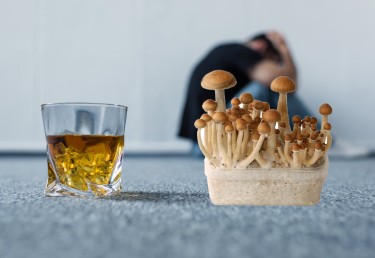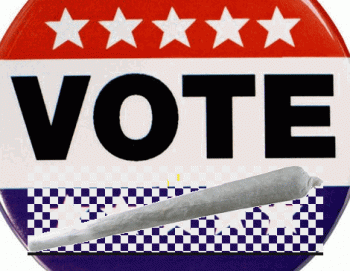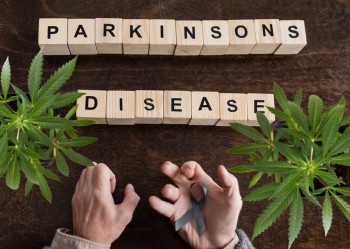
Psilocybin therapy's role in addiction treatment is not a recent exploration. Recent studies have notably illuminated the burgeoning potential of this emerging psychedelic therapy. It exhibits promise in aiding individuals contending with substance use disorders, spanning the realms of alcohol and nicotine addiction.
These studies underscore the growing interest in harnessing psilocybin's therapeutic effects to address the complex challenges of addiction, potentially opening doors to innovative and effective approaches for those in need.
Originating from the appropriately labeled "magic" mushrooms, this compound's extensive therapeutic potential in various mental health ailments is being progressively unveiled. However, a pertinent question remains: Can psilocybin contribute to treating gambling addiction? A group of British researchers is on the brink of exploring this very possibility.
A Landmark Achievement: Utilizing Psilocybin for Gambling Addiction Treatment
A notable stride forward involves a pioneering clinical trial, backed by government funding, that seeks to delve into the potential of utilizing psilocybin in gambling addiction treatment. The Mirror reports this endeavor as the world's first-ever clinical trial of its kind, underscoring its groundbreaking nature and the novelty it brings to the field.
The study's implications extend beyond the research setting. Successful outcomes could pave the way for developing a treatment strategy that promises eventual integration into England's publicly funded healthcare system, the esteemed National Health Service (NHS), one of the critical pillars of the United Kingdom's healthcare landscape.
This remarkable initiative signifies a convergence of scientific exploration, societal recognition, and the potential for tangible improvements in addressing a pressing public health concern. The significance of this endeavor resonates as a testament to the evolving landscape of medical research and its potential impact on improving lives.
Leading the research are four esteemed neuropharmacologists, with Rayyan Zafar at the helm. Zafar acknowledged the historical significance of this endeavor, referring to it as a "trailblazing endeavor."
Zafar enthusiastically stated that they are incredibly excited about this endeavor. It's a project they've been eager to undertake for a substantial period. Their work is set to commence from October onwards. Initially, they will engage with five patients, and then beginning next year, they have plans to expand their scope progressively.
Addressing Addiction Beyond Substance Abuse
When considering alcohol addiction and its relationship with psilocybin, the findings are indeed encouraging. A study conducted in 2022 revealed that individuals grappling with alcohol use disorder experienced a 51% reduction in heavy drinking after receiving psilocybin treatment.
Notably, even after eight months from the initial dose, a remarkable 48% of individuals who underwent psilocybin treatment had successfully abstained from alcohol, a stark contrast to the 24% abstinence rate observed among those who received a placebo.
A separate study published in June 2023 shed light on psilocybin's efficacy in aiding those contending with alcohol use disorder to confront various stressors. In particular, the treatment was observed to enhance the adaptability of self-related cognitive processes, diminish shame-based and self-critical thinking patterns, and simultaneously enhance emotional regulation while reducing cravings for alcohol. The study's authors highlighted these significant improvements in treating alcohol addiction.
Acknowledging these patterns, Zafar indicated that if psilocybin demonstrates efficacy in addressing substance addictions, it is plausible that it could yield "equally advantageous outcomes" in tackling gambling addiction. Zafar highlighted that individuals with gambling addiction exhibit similar neurological traits observed in those struggling with other forms of addiction, such as alcohol or heroin.
Zafar further emphasized the alarming surge of gambling addiction in the U.K., underscoring that it has now gained recognition as a medical diagnosis. However, he noted that a mere 3% of individuals grappling with gambling addiction in the U.K. receive professional treatment. Currently, there are no approved pharmacological interventions or licensed therapies available.
This underscores a significant gap in clinical care, prompting the hopeful prospect that psilocybin therapy could one day find its place within the National Health Service (NHS) to aid individuals with gambling disorders. Zafar described this as an area necessitating substantial innovation.
Possibly Diminishing Prejudice and Optimism on the Horizon
Financing for the study will be provided through funds granted by Imperial College London from U.K. government allocations, which Zafar views as indicative of advancements in the broader perspective on psychedelic treatments.
Zafar highlighted that the historical context of psychedelic research in the U.K. has been characterized by limited institutional or government support, making the current funding allocation highly encouraging. He expressed, "This is a genuinely optimistic indication. Perhaps it signifies a shift in the prevailing paradigm. The field is gaining prominence and is no longer relegated to the periphery of scientific exploration."
While the potential of psilocybin in treating addiction holds promise, we are persistently investigating the long-term implications of these outcomes and discerning whether specific individuals might derive greater benefits from such interventions. As the landscape of psychedelic-assisted therapies unfolds within healthcare contexts, the substantial costs of these treatments remain a significant hurdle for many.
Nonetheless, the prospects offered by psilocybin therapy are steadily expanding, encompassing more than mere chemical dependence. Drawing parallels to the swift transformations witnessed in the cannabis industry over the past decade. It is foreseeable that we will see substantial shifts in the forthcoming years concerning the realm of psilocybin- and psychedelic-assisted therapies.
Conclusion
Exploring psilocybin's potential in addiction treatment represents a significant stride toward addressing diverse forms of dependency. While initial studies offer promising results, the long-term implications and identifying individuals most likely to benefit require thorough investigation. Despite the emergence of psychedelic-assisted therapies in healthcare settings, financial barriers persist as a challenge to widespread adoption.
Nevertheless, the broader scope of psilocybin therapy extends beyond simple chemical reliance, pointing to its capacity for holistic healing. Drawing parallels to the transformative trajectory of the cannabis industry, it is reasonable to anticipate substantial shifts in psilocybin- and psychedelic-assisted therapies in the forthcoming years. As our understanding deepens and the landscape evolves, the potential to reshape addiction treatment and mental healthcare offers hope for a brighter, more inclusive future.






